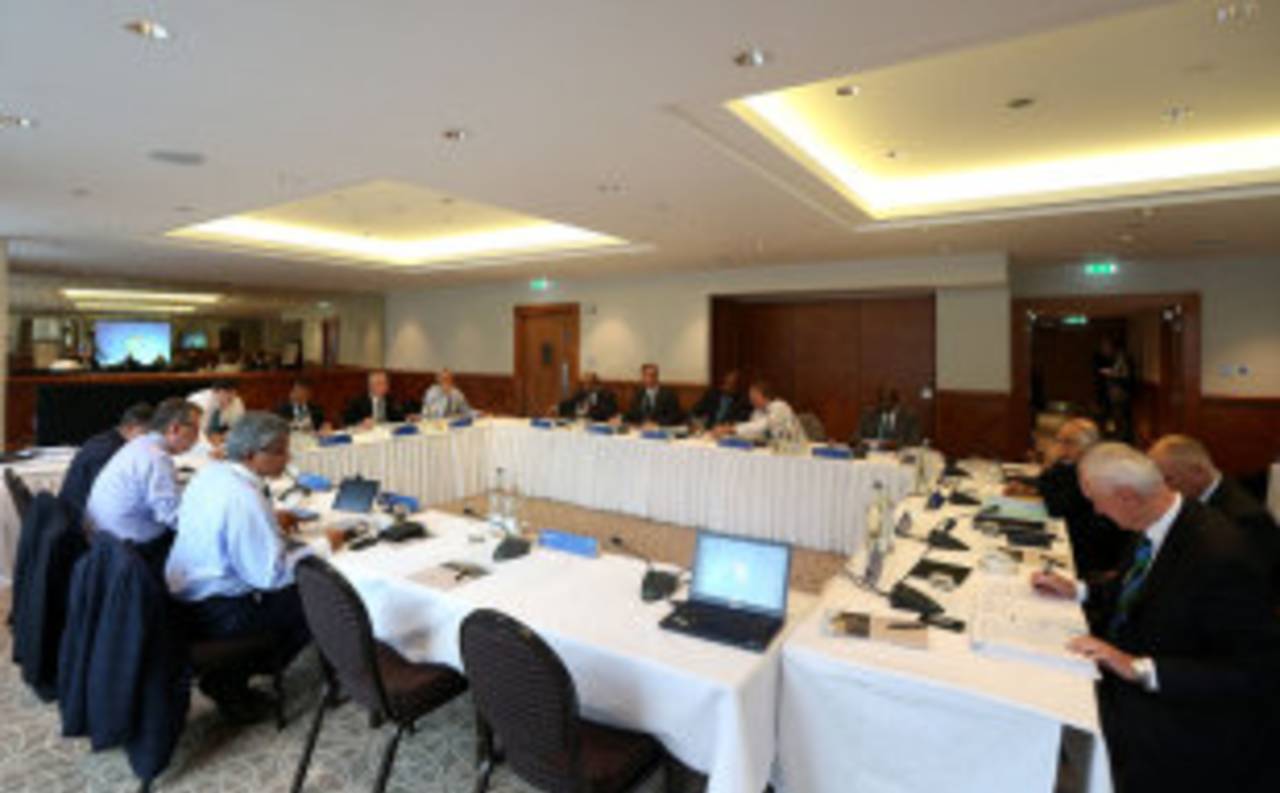Proposed revamp legally sound, says ICC
Iain Higgins, the ICC's head of legal affairs, has responded to the objections raised by Sri Lanka Cricket president Jayantha Dharmadasa, and stated that the resolutions to be presented to the Full Member Board for a revamp of the ruling body are all lega

File photo - According to Iain Higgins, the changes in the ICC's structure proposed by the Big Three boards could be considered within the ICC's "Memorandum and Articles of Association." • Getty Images